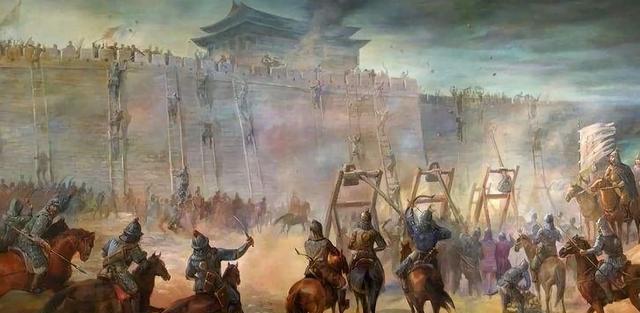China is a land-sea complex, with a vast territory and a vast land area from the west coast of the Pacific Ocean to the east of Central Asia, from south siberia to the roof of the world. Therefore, China is destined to be a country with a huge demand for land power. Many of the Central Plains dynasties in history fell under the continuous attack and plunder of the northern nomads.

Of course, the land power environment in modern China has been greatly improved. On the one hand, China has nuclear weapons, which is a huge help to reduce the defense costs of a country with a huge territory like China. On the other hand, China's largest land power threat in northern China threatened the collapse of the Soviet Union in late 1991, the border between its successor Russia and China was greatly shortened, and China no longer worried about the Soviet Union's heavy-duty clusters rushing from the northeast and northwest along flat terrain to China's core. It should be said that the geopolitical pattern after the end of the Cold War is very favorable to China's land power, and the only remaining India with a clear threat intention is not afraid of strength.
What makes China special is that it has a long coastline of 18,000 kilometers, but beyond the coastline is a continuous chain of islands from the Japanese archipelago to the Sunda Islands, and this island chain was directly or indirectly controlled by the United States after World War II, including the unresolved Taiwan issue. Therefore, China's sea power is not unimportant, but logically China's sea power not only needs to be balanced with the demand for land power, but also naturally difficult to extend outward in physical geography. China's sea power is more easily locked up. Correspondingly, China's vast territory can effectively resist invasion from the sea, as long as there is no generational difference in technology, and not many countries can launch amphibious landing operations against China.
However, if there is enough long-range perception-strike system, then this sea-land composite structure can achieve a certain degree of "land-based sea". Although "land to sea" is destined to lack mobility and the scope is relatively fixed, the strike system does not require large-scale maneuvering for the defender, which can constitute a "denial area" for "sea-to-land" operations relative to sea-powered countries. Using the advantages of the shore-based combat system, the combined land and sea countries can have a better perception, control, and firepower system in a specific area.
For China, the current advantages are precisely here. Compared with the United States, China can organize a more powerful and denser combat system to suppress and even crush the sea powers that come to intervene. Therefore, the PLA has developed a very powerful long-range land-based strike system in the region, which is a product of this logic from medium- and long-range ballistic missiles and cruise missiles to long-range rocket launchers equipped by the Army Group Army. In addition, related surveillance satellites, land-based radars, long-range drones, etc., are also an important part of this system.
This system can now not only threaten and even suppress nearby air bases and naval bases, but also has the ability of ballistic missiles to strike mobile targets. With the penetration capability of ballistic missiles, as long as the accuracy can be guaranteed, it is almost insoluble for ground and sea targets. Therefore, this capability of the PLA can play a very important role in refusing.
Under this system, there may be a gap between the PLA Air Force and the Navy and the sea power countries in terms of quality, but within the scope that the long-range strike system can cover, the combination of the Air Force and the Navy can form a huge operational advantage. Although this area of advantage is fixed, for China that does not pursue foreign aggression and expansion, territorial defense is completely sufficient, and it also has ample ability to include the Taiwan region within the coverage of this system. Obviously, this kind of military superiority is difficult for the US military to overcome, and technological superiority is difficult to truly cope with quantitative and systematic superiority, and even if it joins forces with allies, the US military is still difficult to overcome.
Of course, this advantage also needs to be dynamically maintained, make up for the shortcomings in time and turn China's surroundings into an iron barrel, even if the United States Trump comes to power, we do not have to worry too much.